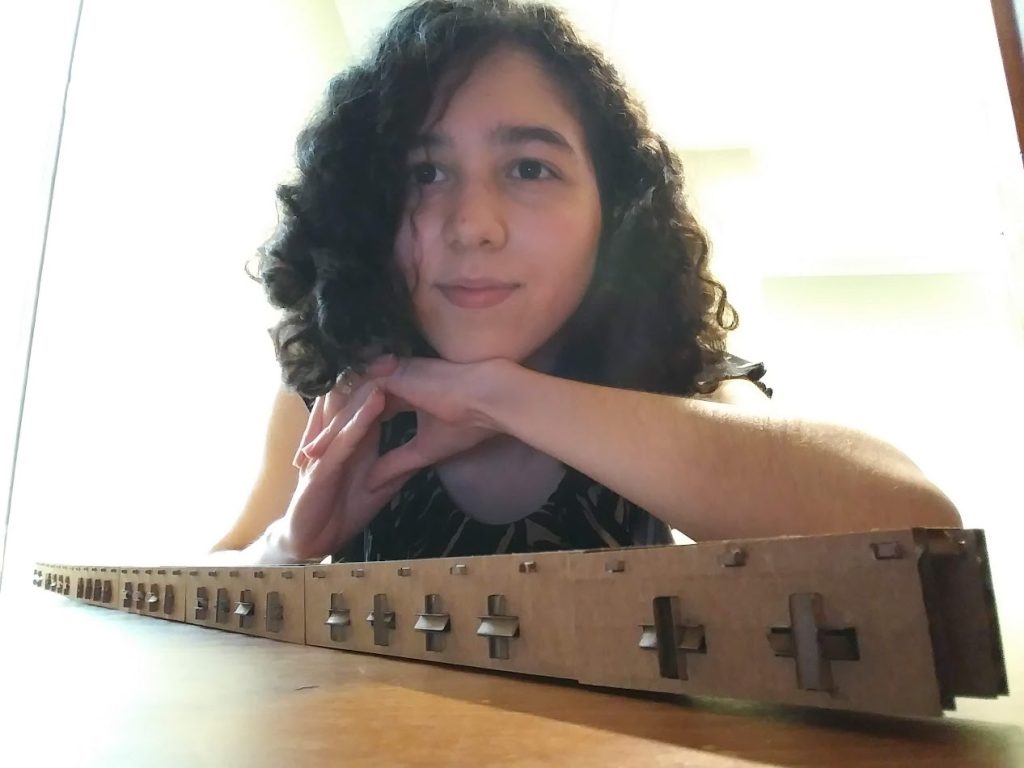
As Carolina ramps up the number of undergraduates participating in research, URSkilled at Carolina develops undergraduate students’ research skills and prepares them to be effective researchers with an entrepreneurial mindset.
URSkilled is part of a broader, intercollegiate “Research for All” initiative between UNC-Chapel Hill, North Carolina A&T University and Campbell University and is supported by a grant from the Kern Family Foundation.
With a focus on research, design, and Making skills, URSkilled workshops were recently offered in the BeAM@CAROLINA MakerSpace to prepare students for success in a research lab.
Daniela Martinez Leal (‘23) participated in the workshop so that she could strengthen her research skills as she begins the MedTech Innovation + Entrepreneurship biomedical engineering master’s program at UNC/NC State. Equipped with a major in biology and minors in chemistry as well as applied sciences and engineering (APSE), Martinez Leal gained more than technical skills in the workshops.

“I learned how to make better prototypes by planning out a design, while also becoming more aware of the array of research tools available within the MakerSpaces,” she reflects. “I believe the workshops are incredibly useful for anyone doing research.”
“I am a visual learner and the balance between lecture and hands-on activities was beneficial so that I was able to try things out myself through experiential learning,” Martinez Leal says.
Rich Goldberg, teaching associate professor in the department of applied physical sciences (APS) leads the URSkilled program.
Goldberg says that URSkilled teaches students how to use tools effectively and to go beyond classroom lessons and skills to make real-world connections. “Unlike class projects that may exist individually, exercises in URSkilled encourage students to design pieces that connect and interface beyond singular products,” he explains. “Students learn how to ask appropriate questions, brainstorm ideas, select materials, make prototypes, and troubleshoot problems.”
Martinez Leal agrees, noting how she will apply what she learned in the workshops as she continues into her master’s program.
“The workshops helped me exercise important interpersonal skills, like communication and collaboration,” she says. “This experience has helped me expand on a variety of skills and has demonstrated to me that BeAM is a great resource I can go back to for my projects.”
Martinez Leal notes the value of the skills learned through courses in the APSE minor, including APPL 110 Introduction to Design and Making: Developing Your Personal Design Potential; APPL 101 Exploring Engineering; APPL 260, Materials Science and Engineering; and APPL 465 Soft Materials Science.
“The link between these APSE courses and BeAM helped me develop valuable technical skills and a ‘Maker’ mindset which I otherwise would not have had the opportunity to explore,” Martinez Leal shares. “The resources at BeAM opened the door for creativity and inspired me to think about projects I could do in my free time and for academic purposes.”
URSkilled prepares undergraduate students at Carolina for the newly instituted Research & Discovery requirement which stipulates that all undergraduates must participate in research efforts.
“URSkilled is an important initiative at UNC as we increase the number of undergraduates in research,” Goldberg says. While the workshops do not fulfill the research requirement, Goldberg says they will help equip undergraduates with the skills needed for success in research labs and professional development.
The workshops will be offered again in the 2023 fall semester with more information forthcoming when the schedule is finalized.
Research for All (R4A) is a multi-institutional project funded by the Kern Family Foundation to increase opportunities for undergraduate research, to eliminate the barriers to participation, and to help students succeed in research opportunities.
By Sarah Auerbach, Department of Applied Physical Sciences
